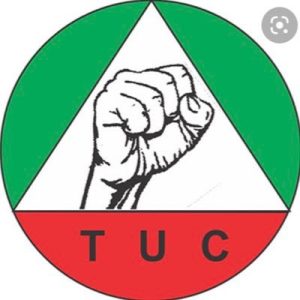 Mkpoikana Udoma
Mkpoikana Udoma
Port Harcourt — The Trade Union Congress of Nigeria, TUC, has demanded for an upward review of the national minimum wage from N30,000 to N447,000 following the economic hardship in the country, orchestrated by inflation and fuel subsidy removal.
TUC explained that the purpose of minimum wage remains to protect workers against undue low pay, ensure a just and equitable share of the fruits of progress to all, reduce poverty, inequality, including those between men and women, by positioning the right to equal remuneration for work of equal value.
The union in a statement signed by its Secretary General, Comrade Nuhu Toro, said Nigerian workers can no longer survive with N30,000 minimum wage, noting that Nigeria pays the lowest and poorest minimum wage to workers, across the African continent.
Toro noted that the last minimum wage was signed into law in April 2019, and it’s billed to expire in April 2024, in line with the provisions of the National Minimum Wage Act.
The statement reads in part, “It will be recalled that the last minimum wage review exercise was done in the year 2019 – about five years ago. Section 3(4) of the National Minimum Wage Act 2019 states that “the national wage agreement expires after five years and it shall be reviewed in line with this Act.
“With the setting up and inauguration of the Tripartite Committee to handle the negotiation of a new National Minimum Wage for Nigeria by President Bola Ahmed Tinubu, it has become imperative for the process to be fast tracked so as to enable workers breathe a sigh of relief considering the excruciating conditions they are forced to live with daily.
“Looking at the minimum wage that is in operation in so many African countries, it is discovered that Nigeria has been totally left behind as what we have as National Minimum Wage is nothing but a deceit that is borne to keep an average worker perpetually poor. Out of the eight countries surveyed, Equatorial Guinea has the least amount as minimum wage which is $224 per month.
“This is way off to that of Nigeria which is $20 per month. The difference in minimum wage in Equatorial Guinea compared to Nigeria is 1,195 percent. The national minimum wage being asked for through this memorandum is N447,000 per month (an equivalent of $380) and it’s therefore apt for now”
Justifying the demand for over 1000percent increment in minimum wage, TUC noted that the continuous devaluation of the Naira has resulted in the astronomical increases in the prices of goods and services in the country, since Nigeria was highly import-dependent.
“As at the last minimum wage review in 2019, one Dollar was exchanged for N325. A Dollar now exchanges for over N1,500 – an increment of almost 500percent. This has reflected on the prices of basic goods consumed by Nigerians because as earlier noted, Nigeria is import-dependent for almost all supplies.
“Prior to the national minimum wage review of 2019, petrol was selling for N145 a litre and that price dictated the price levels that were in operation in the country at that period. Immediately the N30,000 minimum wage was implemented, the petrol price was jerked up to N167 per litre.
“With the total removal of fuel subsidy on petroleum in 2023, the price is no way above N600 per litre and prices of almost all the basic needs of life including transportation, accommodation, food stuff, school fees, utility bills etc. had gone to the roof top. The new price levels have thus made a mincemeat of the minimum wage of N30,000 per month. The urgent need for an upward.
“According to the recent statistics from the National Bureau of Statistics, approximately 70 million people are in active labour force. The 2023 data from World Poverty Clock pegged the number of extremely poor Nigerians at 71 million, this is very dangerous.
“In addition to that, the NBS says the inflation rate in the Country has risen to about 29 percent in January 2024, food inflation has skipped to over 30 percent. This brutal reality has deepened the poverty level through the erosion of purchasing power of workers.
“Something substantial must therefore be done urgently to avoid productivity plummeting to a level that may dash the hope of any economic revival in the next foreseeable future.
“Electricity tariff has continued to be on increase since the N30,000 minimum wage was implemented in the country. Statistics shows that per unit of electricity as charged by the Distribution Companies has increased from N32.50k to over N76 per unit, which is an increase of over 100percent.”



